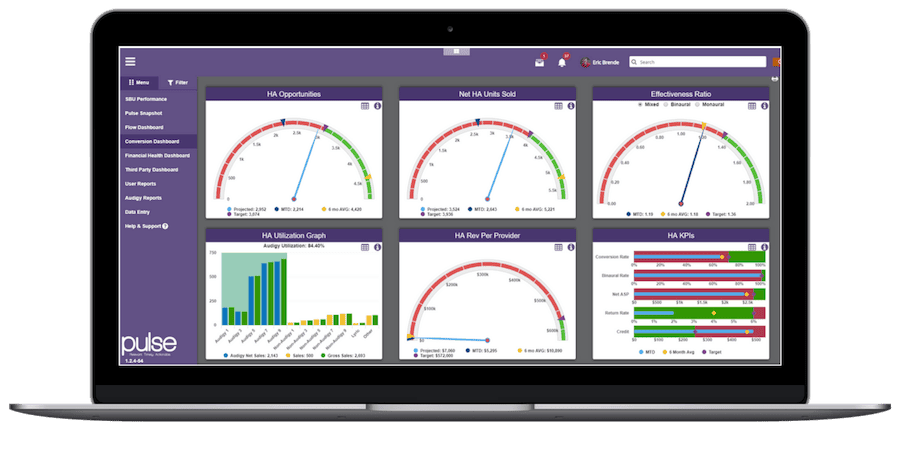Dealing with insurance claims, authorizations, and reimbursements can be time-consuming and costly. Private-pay patients allow a practice to streamline the billing process, which is part of the reason Eastpoint Audiology in Louisville, Kentucky wanted to transition away from their primarily third-party administrator patient base.
Audigy’s Strategic Business Unit (SBU) worked closely with the practice to develop a strategy that would support their transition to a private-pay patient base in a two-phase approach.
Phase 1
Patient flow and income came mostly from six TPA contracts in phase one. During this phase, data and key performance indicators were tracked for 12 months in Pulse, Audigy’s online dashboard that pulls together key metrics such as conversion rates, sales rates, and return rates. The provider partnership included reimbursement agreements, which held them accountable to patient care and opportunity goals.
They leaned heavily on Patients for Life® — a program that ensures best practices are maintained practice-wide with every single patient — and their primary strength, conversion, to capitalize on nearly every opportunity.

Phase 2
After 12 months, their income stream was strong enough to begin phase two — they secured a loan so they could target a broader private-pay patient base through a clear marketing plan and a fine-tuning of their office environment.
The Audigy team supported the development and implementation of a comprehensive marketing plan that leveraged both traditional and digital tactics. While traditional marketing focused on outreach at retirement centers, digital marketing efforts were focused on the website, social media presence, and Digital AMP. Audigy’s digital asset-management program (Digital AMP) includes, among other things, an initial audit of their web presence and those of their competitors, custom ongoing content creation, paid-search collaboration, and advanced reporting and analytics.
Proven Results
With increased private pay patients, comes higher revenue and reduced administrative burdens involved in claims, authorizations, and reimbursements. This patient-base also has more freedom to choose the products and services that best suit their needs without limitation, and without the complexities of insurance involvement, the practice can build stronger patient relationships that are based on trust and personalized care.
Leaning on what they learned through PFL and the ongoing support of their Audigy SBU, Eastpoint Audiology experienced a stable increase in private pay patients, rising from 35% to 74% of their patient flow, as well as an increase of 136% in their average hearing aid sale price (ASP).
